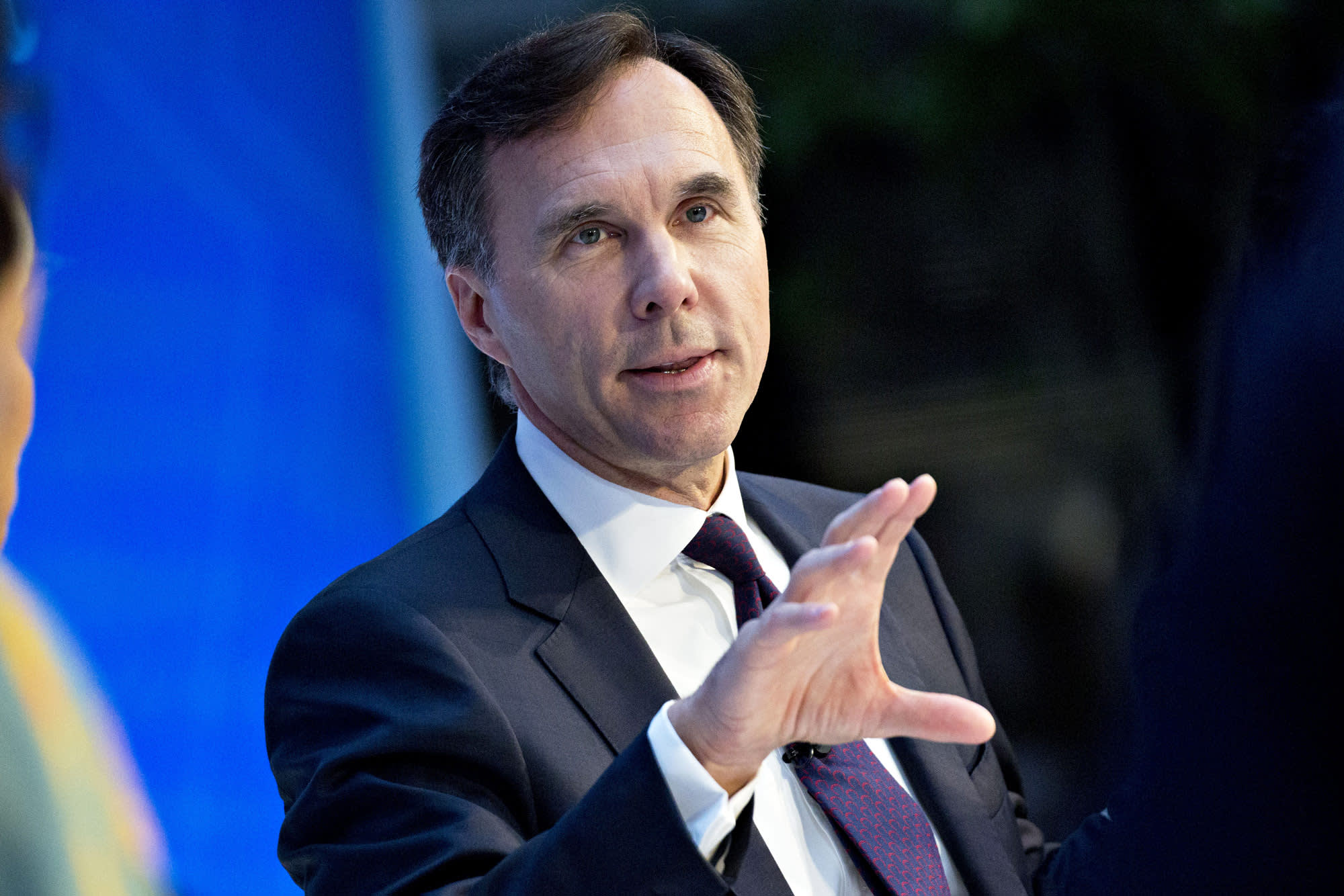Digital tax agreement would be priority as OECD head, Canada’s ex-finance minister Morneau says

Bill Morneau, the former Canadian finance minister, speaking at a debate at the International Monetary Fund (IMF) and World Bank Group Annual Meetings in Washington, D.C., Oct. 12, 2017.
Andrew Harrer | Bloomberg | Getty Images
LONDON — Bill Morneau, the former Canadian finance minister, has told CNBC that one of his first priorities if he became head of the OCED would be to work towards a solution for a cross-border digital tax.
Morneau, who is in the running to become secretary-general of the Organization for Economic Cooperation and Development, said agreement on a cross-border tax for the digital economy was a “real issue” that needed to be resolved.
“I think the way that we get to a conclusion is to recognize that for the digital giants, it’s better for them to understand what their situation is,” he told CNBC’s Julianna Tatelbaum on Friday.
“They need to understand what their tax situation is in different countries so they have a vested interest in getting to a conclusion.”
His comments come amid ongoing tensions between the United States and various European countries over the taxation of tech companies such as Apple, Alphabet and Amazon. Earlier this month, the OECD warned that countries risked damaging the global economy if they didn’t reach an agreement. Its current head, Angel Gurria, told CNBC that he hoped the final details would be settled by mid-year 2021.
Morneau said he hoped to act as a broker between the European and American perspectives.
In terms of what role the OECD could play in the rebuilding of economies post-pandemic, Morneau said it could help with the analysis of “what’s worked and what hasn’t worked,” as well as “where we can focus our energies to have a greener recovery.”
He also addressed possible concerns around him stepping into the role of OECD secretary-general, following recent allegations of a conflict of interest in relation to the WE Charity.
He pointed out that the ethics commissioner in Canada had cleared him of any suggestion that he received a gift “inappropriately.”
Morneau stepped down as Canada’s finance minister in August after five years in the job, amid reported disagreements with Prime Minister Justin Trudeau over spending to help the country’s economy through the coronavirus pandemic. He was replaced by deputy prime minister Chrystia Freeland.
— CNBC’s Silvia Amaro contributed to this story.